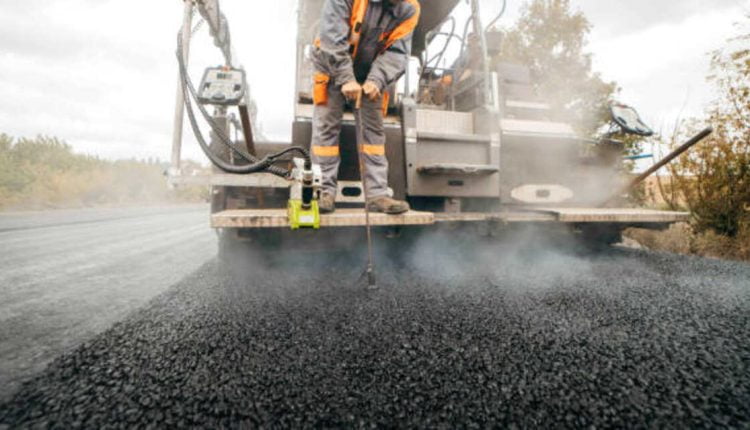Asphalt paving services provide businesses, governments, and industries with services designed to keep their parking lots, roads, and driveways looking their best at all times. Regular seal coating and filling small cracks will extend the lifespan of your asphalt pavement surface. The best guide to finding Hometown Asphalt Paving of Memphis.
Asphalt is created through the careful mixing of aggregates with bitumen binder, while some varieties feature special water management features, such as porous asphalt that allows water to filter through to groundwater sources.
Commercial
Asphalt can be utilized in many commercial projects, from parking lots to walkways. Asphalt surfaces provide numerous benefits to both businesses and their customers alike; properly maintaining an asphalt surface helps prevent accidents and minimize liability while simultaneously increasing your business’s curb appeal.
Asphalt offers more versatility and resistance to cracking than concrete; therefore, it can better withstand heavy traffic loads while being more accessible to repair should damage occur. With an experienced asphalt paving company on board, quality surfaces that will last will be achieved for years.
Commercial paving projects tend to be larger in scope than their residential counterparts, and contractors should have experience managing such large undertakings. Springtime is generally the optimal time to begin such work due to favorable weather conditions for pouring. A successful foundation layer should consist of either gravel or crushed stone topped off by an additional binder layer consisting of sand and larger stones to provide strength and durability to paved surfaces.
Once the asphalt has been laid, a seal coat should be added to preserve its surface and extend its life span by protecting against UV rays, water penetration, and other elements that shorten its lifespan. Regular application can extend its protection up to 10 years.
Residential
Asphalt paving is an economical option for residential driveway resurfacing, offering homeowners benefits such as durability, reliability, and beauty. When properly maintained, asphalt surfaces can last for over 20 years without wearing out. Asphalt pavers also tend to be much more cost-effective than their masonry counterparts, like brick pavers, cobblestone pavers, or concrete pavers.
Residential asphalt paving begins with a strong and stable sub-base made up of crushed stone. Next, a layer of binder (an asphalt mix consisting of large aggregates mixed with oil) is laid down as its strength; after this application, a top coat of liquid asphalt is then spread on top to create a beautiful road or driveway surface.
Once an asphalt surface is laid, it must be set over several days. While driving over this surface can continue during this timeframe, drivers should avoid hard turns in order to prevent scuff marks.
Related Posts
Asphalt provides another advantage by quickly melting snow and ice faster than other paving materials due to retaining its dark hue and absorbing heat from the ground. Furthermore, it offers better traction than unpaved surfaces and reduces glare with its dark hue.
Industrial
Industrial asphalt paving projects require extensive planning and precision for success. If you want to transform the flooring of your warehouse, driveway, or parking lot, partnering with an experienced commercial paving contractor is vital in getting you to achieve what you want.
Industrial pavements must be designed differently than residential ones in order to withstand heavier traffic loads and more frequent repairs. Furthermore, they must accommodate different vehicle weights and driving conditions – including turns, lane changes, and brake pads. As a result, this requires higher quality asphalt with more complex base construction methods.
Step one of this process entails clearing away existing surface materials such as grass and asphalt with cracks or any debris on top. This typically takes place using heavy equipment like milling machines and large dump trucks to remove everything. The milled material is later transported away for recycling or disposal.
Next, the site must be graded to ensure proper drainage and level surfaces for paving. A binder layer is then applied over the aggregate – this component gives asphalt its strength and durability; various mixes may be utilized depending on project requirements.
Once the binder is in place, hot mix asphalt (HMA) is applied using paver rollers with screeds that adjust for desired asphalt mat thickness. After compacting and smoothing with rollers, HMA must then be packed by brush or spray sealer to prevent water from entering and damaging new pavement edges.
Municipal
Municipal asphalt paving projects differ significantly from their commercial or residential counterparts in that they require an experienced paving contractor who understands all aspects of the process, local regulations, and code compliance. Due to increased traffic on public roadways and paved surfaces, high-quality material that will resist wear and tear while being capable of compacting into place underlying soil layers prior to being covered by asphalt must be used.
Municipalities seeking asphalt paving contracts want their job completed quickly and with as minimal impact on residents as possible. Contractors specializing in this work have access to staff, equipment, and materials necessary for completion on time and within budget, which makes hiring one more efficient than employing full-time municipal crews for tasks such as mowing roads or cleaning streets in order to complete this project.
Asphalt paving can serve a range of infrastructure needs in a municipality, from curbing to drainage and gutters. These features help enhance property values while increasing safety for people walking, driving, or riding on its surfaces. Asphalt can even help municipalities achieve LEED credits through green construction; porous asphalt may help decrease runoff pollution in the environment.
Read also: Asphalt Paving Equipment


